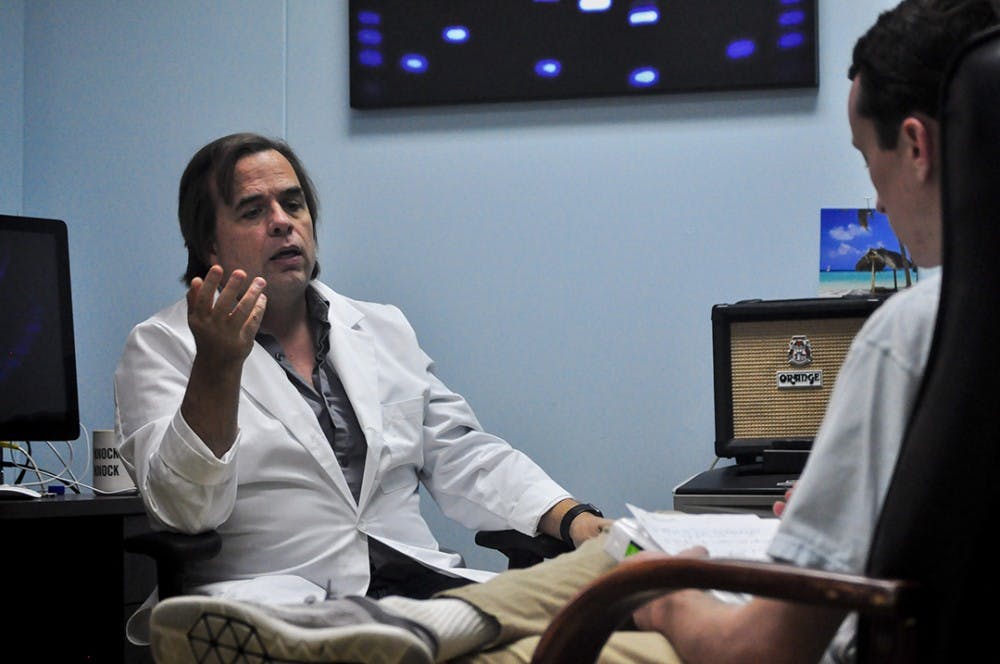While an undergraduate at the University of South Florida, Phillip Buckhaults would often eat lunch in the Moffitt Cancer Center at USF’s medical school. He watched, day in and day out, as sick children would wheel their IV’s into the cafeteria to eat while receiving chemotherapy. This left a lasting mark on him. It was here that he was inspired to take up the fight against cancer, the "emperor of all maladies."
“These docs were doing the best they could, but they were really shepherding a lot of these kids to the grave and they couldn’t do anything about it," Buckhaults said. "Some kids they’d save, but a lot of them they couldn’t."
It was here that he decided to follow his inclination for medical research and try and give oncologists better tools to combat the disease.
Now at USC, he's making good on that goal. Buckhaults honed in on one gene, p53. This gene is the most frequently mutated gene in all of cancer. When this gene is altered, it can lead to cancers becoming drug resistant and allows these cells to live forever. This mutation lets cells form tumors and ravage throughout the body.
Buckhaults had an idea. He decided that he could turn this strength into a weakness. Now, he is hunting for the Achilles' heel of p53.
The phenomenon he is investigating is something that has long been known to happen in yeasts, fruit flies and, just recently, certain breast cancers. It is a concept called "synthetic lethality." Synthetic lethality occurs in cells when there is a simultaneous mutation in two specific genes, causing the cells to die.
“If you knocked out a combination of two genes, then [the cell] would die. So, gene A, [the cell] can live without, gene B, [the cell] can live without," Buckhaults explained. "But, if you have gene A and gene B mutated in the same cell, the cell croaks and dies.”
Taking full advantage of this anomaly, Buckhaults is applying it to the p53 gene. He and his lab are trying to "systematically screen through every gene in the genome" — all 20,000 of them — to find genes that when mutated with p53 trigger cell death. By identifying this vulnerability, his discovery could lead to a targeted treatment for a large portion of all cancers.
Payne Skersick, a third-year pharmaceutical sciences student, began working in Buckhault's lab in January 2016. He says his time in the lab has helped him to make a difference while preparing him for some of his more difficult classes, namely genetics and biochemistry. He also learned about his own genetic makeup.
“I was allowed to sequence part of my DNA from a saliva sample, looking specifically at the p53 gene," he said. "I discovered I am a heterozygote for the p53 gene, basically meaning I am less likely to die of cancer and more likely to die naturally of old age. That’s comforting to hear, I guess.”
Buckhaults finds joy in his work because it allows him to do meaningful research to try and save people’s lives. Having been inspired all the way back in medical school, he strongly encourages undergraduates to get involved in research while at USC by finding a professor working in a field they're interested in.
“Most professors would be very happy to have a student come in,” Buckhaults said. "If you're the type that wants to try to do something important and do it on your own initiative, then go find a research lab that is similarly minded."

